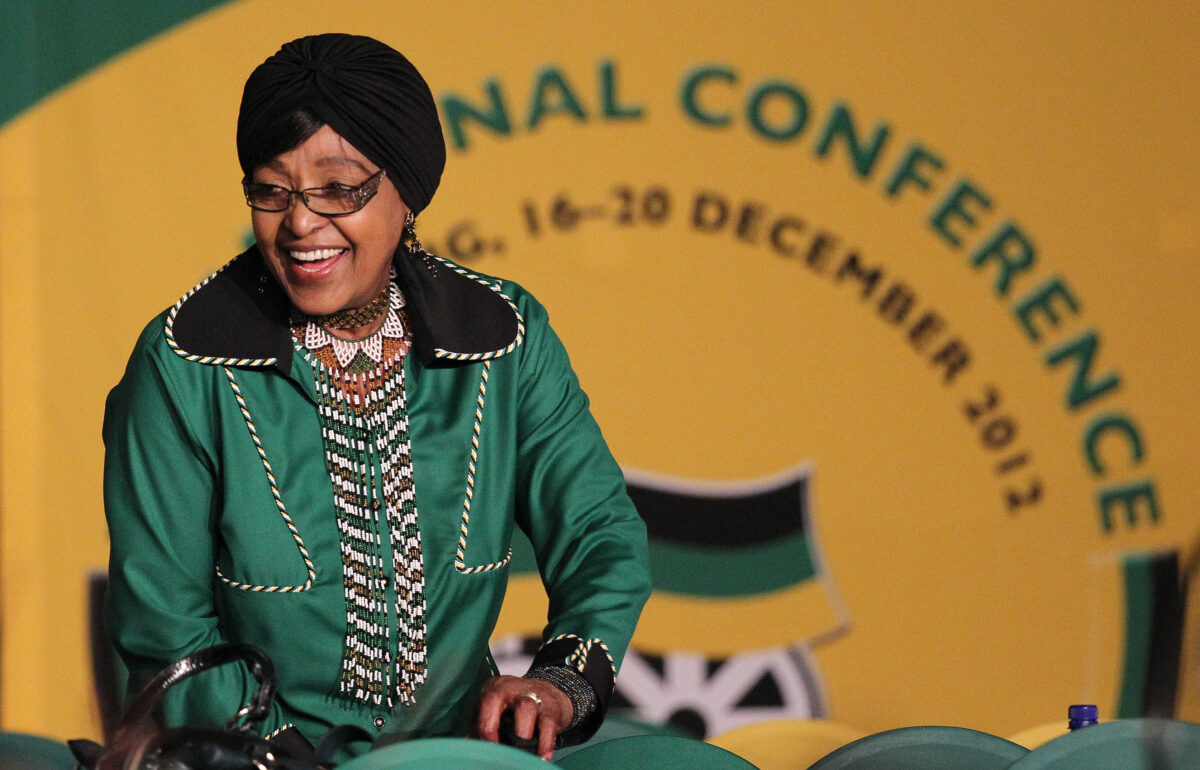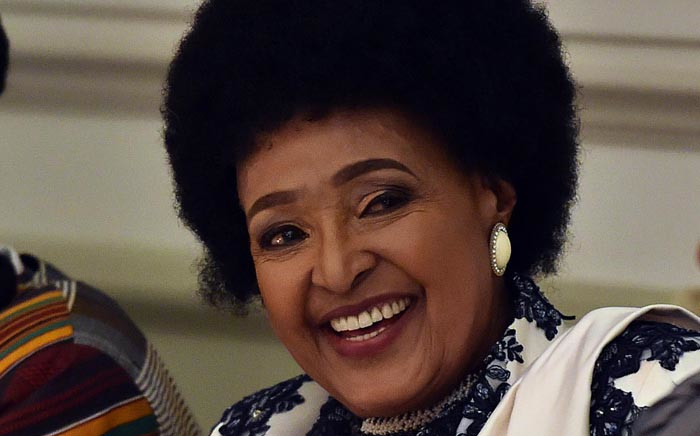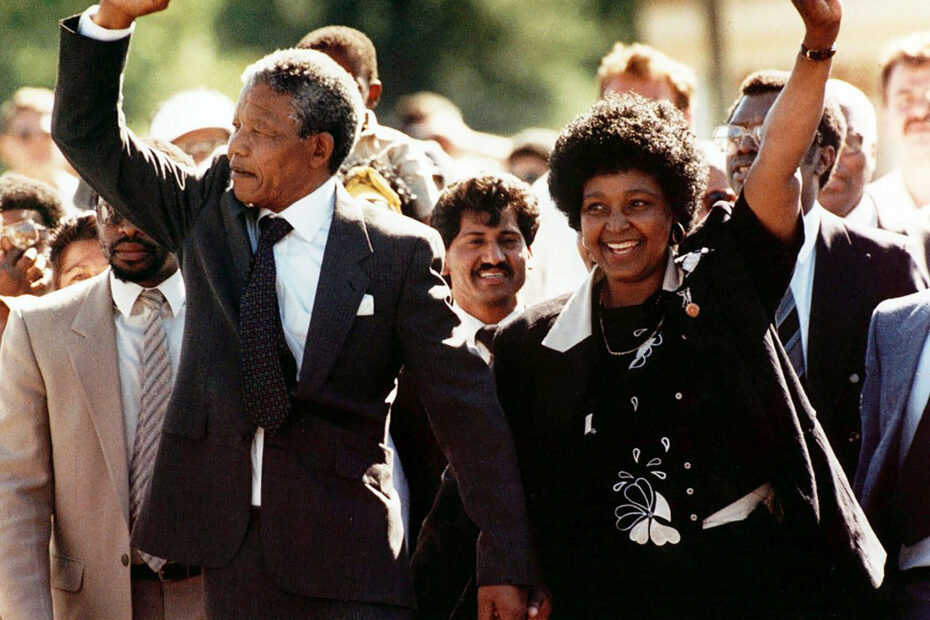Winnie Mandela started as a social worker, before joining activism. She married Nelson Mandela, an African National Congress leader, in 1958. He was imprisoned for much of their forty-year marriage. Winnie became president of the ANC Women’s League in 1993 and later joined Parliament. But her reputation was affected by convictions for kidnapping and fraud. She passed away on April 2, 2018, in Johannesburg, South Africa. Winnie Madikizela-Mandela remains a mysterious figure in South African society and history. Some speculate that, like many affected by the harshness of Apartheid, she might have grappled with Post Traumatic Stress Disorder, potentially shedding light on her actions. Despite occasional “morally ambiguous” behavior, The Legacy of Winnie Madikizela-Mandela remains, because of her unwavering dedication to justice and the marginalized. However, her methods in pursuing these goals have rightfully faced scrutiny.
FACTS ABOUT THE LEGACY OF WINNIE MADIKIZELA MANDELA
- Name: Winnie Madikizela-Mandela
- Birth Year: 1936
- Birth Date: September 26, 1936
- Birth City: Bizana
- Birth Country: South Africa
- Gender: Female
- Best Known For: Known as the controversial wife of Nelson Mandela; held various governmental roles. Careers: Civil Rights, World Politics
- Astrological Sign: Libra
- Schools: University of the Witwatersrand, Shawbury High School, Jan Hofmeyr School of Social Work Nationalities: South African
- Death Year: 2018
- Death Date: April 2, 2018
- Death City: Johannesburg
- Death Country: South Africa
Education and Career

Born on September 26, 1936, in Bizana, a rural village in South Africa’s Transkei district, Nomzamo Winifred Madikizela, later known as Winnie, relocated to Johannesburg in 1953 to pursue studies at the Jan Hofmeyr School of Social Work. During this time, South Africa was under an oppressive apartheid regime, segregating Indigenous Africans from European descendants who enjoyed superior privileges in wealth, health, and social status.
Completing her studies, Winnie, despite receiving a scholarship offer to study in America, opted to become the first Black medical social worker at Baragwanath Hospital in Johannesburg. Through her dedicated work, she witnessed the distressing conditions in which many of her patients lived.
In the mid-1950s, Winnie crossed paths with Nelson Mandela, an attorney and leader of the African National Congress (ANC), an organization striving to dismantle apartheid. Despite concerns raised by Winnie’s father regarding their age difference and Nelson’s deep political involvement, the two wedded in June 1958. Subsequently, Winnie moved into Nelson’s Soweto residence, adopting the name Winnie Madikizela-Mandela.
Marriage of Winnie Madikizela-Mandela to Nelson Mandela

At 22, Winnie met Nelson Mandela, 16 years her senior, a renowned anti-apartheid figure embroiled in the Treason Trial. They got engaged on March 10, 1957, and married against government restrictions on June 14, 1958, in Bizana. Their union faced turmoil; Nelson’s activism led to frequent police raids on their home, leaving Winnie isolated. Amid this, she discovered her pregnancy.
In October 1958, Winnie joined a protest against apartheid’s pass laws, enduring imprisonment alongside other women. This experience deepened her commitment to the cause, distinguishing her as a potent voice of dissent. Subsequently, she was dismissed from her job at Baragwanath Hospital. Her daughter Zenani was born on February 4, 1959.
After the Sharpeville massacre in March 1961, Nelson’s arrest left Winnie to navigate their marriage mostly on her own, a recurring theme in her life.
Winnie Mandela’s Resilience Amid Apartheid Oppression and Struggles
Winnie faced escalated bans restricting her movement to just her neighborhood. These limitations cost her jobs, pushed her daughters to be educated in Swaziland, and compelled her to seek help from Lady Birley and Helen Joseph to enrol them at Waterford Kamhlaba private school. Despite constraints, she organized aid for political prisoners.
In 1969, she was arrested under Prime Minister Vorster’s Terrorism Act and endured solitary confinement for 17 months. The conditions were horrific, with constant interrogation and torture. Eventually, she acquiesced to the pressure. Despite her release after a trial, she faced another severe five-year banning order upon her return, hindering her ability to see Nelson on Robben Island.
She defied these restrictions to meet Nelson but endured monitored constrained visits. While he focused on intellectual pursuits in prison, Winnie became a symbol of resistance, facing relentless police harassment and violence at home. Her resilience grew despite repeated arrests and intimidation.
Even in prison, her spirit remained unbroken. Upon her release in 1973, she continued her activism, yet this time, her imprisonment was less harsh. Surprisingly, her banning order expired in 1975 without immediate renewal, a surprising turn of events.
Soweto Uprisings
Forced to relocate after the 1976 Soweto uprisings, she continued to speak out, highlighting the economic strength of Black South Africans. Returning to Soweto in 1985 after her house was attacked, Winnie gained renown as the “Mother of the Nation.” Yet, controversies arose as she endorsed retaliations against apartheid collaborators and her security group, the Mandela United Football Club, was associated with brutality. Tragically, in 1989, a boy named Stompie Moeketsi was abducted by the club and later found dead.
By the mid-1970s, South Africa’s youth unrest surged dramatically. Steve Biko’s Black Consciousness Movement, established in 1969 in response to perceived white liberal paternalism, birthed the all-black South African Students’ Organisation (SASO). The country’s youth took up the mantle of liberation, and Winnie stepped into a new role as a symbolic mother figure for this burgeoning student movement.
In May 1976, just before the iconic Soweto student uprising, Winnie and Dr. Nthatho Motlana helped form the Soweto Parents’ Association. After the violence of June 16, they dedicated themselves to aiding arrested, injured, or deceased youths and parents. While the police tried to blame Winnie for sparking the unrest, her influence alone couldn’t explain the immense anger felt by South Africa’s youth at that time.
Winnie was made a scapegoat for the Soweto uprising and was detained. She remained in police custody for five months before being released in December 1976 without any charges. In January 1977, she received a new five-year banning order.
Stompei Seipei’s Death and Effect on The Legacy of Winnie Madikizela-Mandela
The truth about Stompei Seipei’s fate in 1988 remains shrouded in uncertainty. At the TRC hearing, it was revealed that the fourteen-year-old activist disappeared from his home and was later found murdered, allegedly by members of the MUFC. Stompie, accompanied by three other missing boys, had been in the company of MUFC members before vanishing.
His body was discovered on January 4, showing signs of severe beating. Dr. Abu-Baker Asvat, Winnie’s acquaintance, had attended to Stompie’s injuries and noted that he suffered brain damage, rendering him unable to eat. Another boy present at Winnie’s home, Kenneth Kgase, managed to escape and reported abductions and assaults by MUFC to Father Paul Verryn and lawyer Geoff Budlender.
The Controversies against the Legacy of Winnie Madikizela-Mandela
Upon local political and global pressure, Nelson was released in 1990 after 27 years of imprisonment. The prolonged separation and societal upheaval had deeply strained their marriage, leading to their separation in 1992. Before this, Winnie was convicted of kidnapping and assaulting Moeketsi; her initial six-year sentence was reduced to a fine upon appeal.
Despite her conviction, she ascended to the presidency of the ANC’s Women’s League, a position that stumped The Legacy of Winnie Madikizela-Mandela. In 1994, Nelson won the presidential election, and Winnie became deputy minister of arts, culture, science, and technology. However, her radical affiliations led to her dismissal from the cabinet by her husband in 1995. Their divorce in 1996 marked only a few years spent together out of their nearly four-decade marriage.
Facing the Truth and Reconciliation Commission in 1997, Winnie was implicated in “gross violations of human rights” tied to the actions of her bodyguards. While some ANC leaders distanced themselves, she maintained grassroots support. Re-elected to Parliament in 1999, she was later convicted of economic fraud in 2003. Though she resigned, the conviction was eventually overturned.
During a 2010 Evening Standard interview, Winnie strongly criticized Archbishop Desmond Tutu and her ex-husband. She expressed disapproval of Nelson’s acceptance of the Nobel Peace Prize alongside former South African President F.W. de Klerk. However, Winnie later refuted having made those statements.
In 2012, a year before her husband’s passing, the British press released an email authored by Winnie. The details showed that she censured the ANC for its treatment of the Mandela family in general.
Life Celebration and The Legacy of Winnie Madikizela-Mandela
After receiving prolonged medical care for a kidney infection, Winnie passed away on April 2, 2018, in Johannesburg.
A family representative confirmed her death, expressing gratitude for her life. He urged those who cherished her to celebrate the remarkable woman she was, despite the sorrow felt at her loss.
Despite the controversies, the Legacy of Winnie Madikizela-MandelaWinnie remains. She has played a pivotal role in ending South Africa’s oppressive policies. Her life story has been adapted into an opera, books, and films. Various actresses portrayed her character across numerous productions. Actresses like Alfre Woodard, Sophie Okonedo, and Jennifer Hudson have interpreted her in different films and television movies.



